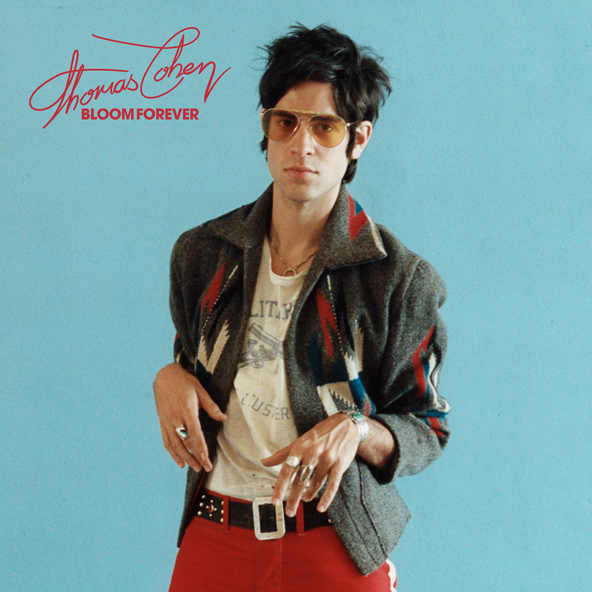Love, loss and grief are themes that have fuelled singer-songwriters’ inspiration since their very early history. Lovelorn verses and difficult lives have always made great storylines; musicians delving into their inner selves to find something to chew over and then spit out in their songs. In this respect, Thomas Cohen is no exception, forming as they do the main drive behind his solo debut. Though he “would hate for somebody to listen to the record and just think about [him],” it’s very difficult to separate Bloom Forever’s narrative from the biography of its creator.
Cohen’s story is tragic and fascinating, and removing that context entirely from the album would be a mistake –– just as an even bigger mistake would be to only focus on the names of the people involved. “What’s in a name?” someone asked some 419 years ago. And here we are now: We don’t need to know who the characters are, only what happened to them, and Bloom Forever — written between 2012 and 2015, with a chronologically ordered tracklist — isn’t a million miles away from memoir. A journey through three years in the life of a young man getting married, having his second child, and then having to face the tragic passing of his wife (all before turning 25) on a path from mourning to a sort of acceptance, written by someone aiming to be what Roland Barthes called a Scriptor, rather than an Author.
Cohen, giving space to his interest in knowing people’s reactions and feeling towards his music, let go of his songwriting during the recordings, having his fellow musicians improvise on elements of the tunes he made them listen to. A distance that allowed Bloom Forever to sound like a desire for rebirth, when it could have easily been a descent to hell, not far from what Neil Young achieved with On the Beach –– a big unspoken reference of the album.
Phased bottleneck guitars, Rhodes pianos, basses and synths lay a solid foundation, each instrument perfectly balanced with the other, though keeping a distinguishable part in the harmony, giving the songs a layered and complex structure never overdone or taken too far as Cohen croons on top. The album’s ballads put the American folk and blues tradition seamlessly in connection with British artists like Scott Walker, Elton John and David Bowie –– the sensual sax solo of the opening ‘Honeymoon,’ for instance, or the Mike Garson-ish piano in ‘Only Us’.
Where the lyrics turn darker, the melody comes in lighter. In ‘New Morning Comes,’ for example: “Will you be there and hold my hand as the sea becomes a storm?/ When the light shines through the window as a new morning comes” sings Cohen, before letting a mid tempo, electric piano solo burst with energy, turning the desperate plea into a resolution for a new awakening. Even in tracks like ‘Country Home,’ the turning point of the plot, or ‘Mother Mary,’ where the highest distress is reached, the light opening of the backing vocal and the gentle strumming of the guitar help soften the mood, never allowing despair to take hold but not forfeiting emotional impact.
And this is what Bloom Forever holds, even in its title: the blossom of a songwriter ready to open up to the light. A prompt to a better life.


